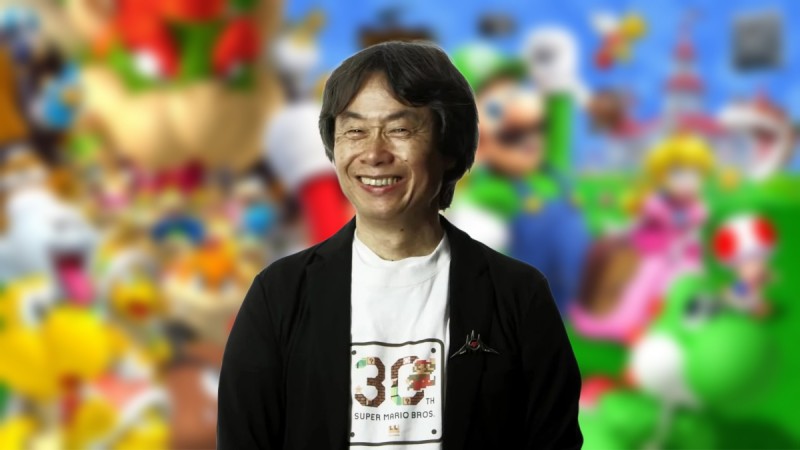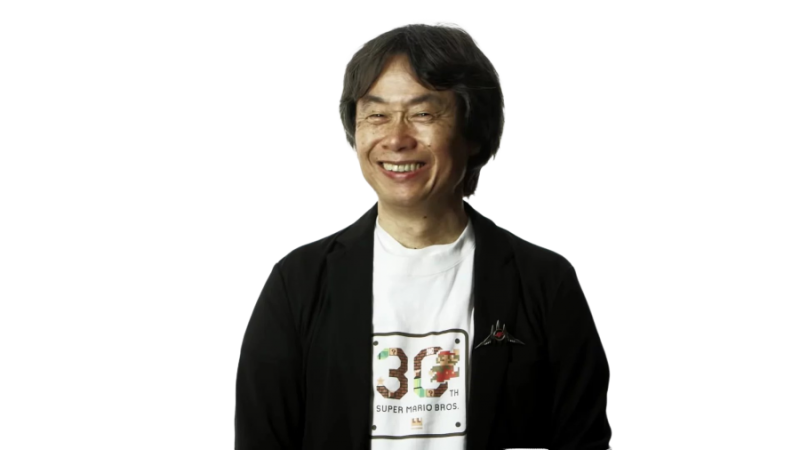
Nintendo's Shigeru Miyamoto is one of the most revered names in gaming, and for good reason. What he's done for the Nintendo community (and gaming in general) has been incredible, but it's his kindness and genuine nature that makes him so endearing to gamers everywhere. In a recent interview with New Yorker, Miyamoto-san detailed how he wants to make the world a kinder place and video games more than the perception of violence.
When asked what, if he could, change about the world currently, Miyamoto-san responded, saying "I wish I could make it so that people were more thoughtful and kind toward each other. It’s something that I think about a lot as I move through life. In Japan, for example, we have priority seating on train carriages, for people who are elderly or people with a disability. If the train is relatively empty, sometimes you’ll see young people sit in these seats. If I were to say something, they’d probably tell me: “But the train is empty, what’s the issue?” But if I were a person with a disability and I saw people sitting there, I might not want to ask them to move. I wouldn’t want to be annoying.
"I wish we were all a little more compassionate in these small ways. If there was a way to design the world that discouraged selfishness, that would be a change I would make."
This is very much more apparent as social media continues to snowball in how it inspires instant reactivity and how algorithms are essentially built around rewarding loud and angry rhetorics. So much of sites like Facebook and Twitter are interactions where people seem to be just talking down to one another, yelling about things they'll forget about in five seconds. It's an easy way to connect and, psychologically speaking, an instant way to feel a type of control over your life. "I react this way, I can possibly see that change" offers an alluring reward system, especially in a year like 2020 where so much spiraled beyond what we could possibly imagine so quickly.
Miyamoto also went on to discuss what he'd like to see video games evolve into from their current state. While violence in gaming isn't the standard, we love our shooters and our epic beatdowns. Though that's not all that is out there for people to enjoy, he did mention that there is still more improvement to be made while still keeping the medium enjoyable for all.

This discussion was kicked off when the New Yorker writer asked about special GoldenEye 007 memories, prompting Miyamoto to disclose that he wasn't happy with how many people that character killed. "I think humans are wired to experience joy when we throw a ball and hit a target, for example," he replied. "That’s human nature. But, when it comes to video games, I have some resistance to focussing on this single source of pleasure. As human beings, we have many ways to experience fun. Ideally, game designers would explore those other ways. I don’t think it’s necessarily bad that there are studios that really home in on that simple mechanic, but it’s not ideal to have everybody doing it just because that kind of game sells well. It would be great if developers found new ways to elicit joy in their players."
He added, "Beyond that, I also resist the idea that it’s O.K. to simply kill all monsters. Even monsters have a motive, and a reason for why they are the way they are. This is something I have thought about a lot. Say you have a scene in which a battleship sinks. When you look at it from the outside, it might be a symbol of victory in battle. But a filmmaker or writer might shift perspective to the people on the ship, to enable the viewer to see, close up, the human impact of the action. It would be great if video-game makers took more steps to shift the perspective, instead of always viewing a scene from the most obvious angle."
The latter about the perspective of the ship also speaks volumes to his earlier point about compassion. The world is experienced drastically different depending on who you are and while he's not calling for any sort of erasure, it is interesting to think about diving deeper into the themes and stylization that we've come to love through the years.
There was so much more to this interview, I highly recommend checking out the rest here at New Yorker.
https://ift.tt/3rhr5QZ